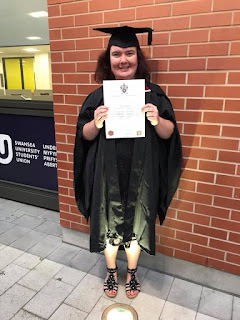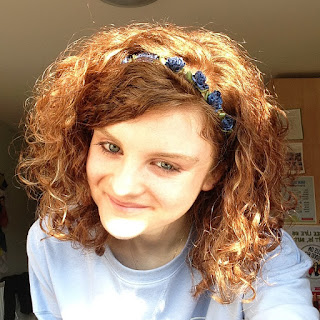This is part two of Natasha's experience with coping with mental health
at university. To read part one, where Natasha discusses dropping out of university and dealing with grief, click here.
Unlike before, I no longer had education to throw myself into, so I found a job that was a 30-minute drive away, with hours from 10am-10pm five days a week. And it helped to a degree – it forced me out of myself, and I learned to communicate with people again. It was not until the pandemic hit in March 2020 and I was furloughed, that I realised I had nothing other to do than talk about my feelings. I found someone professional and over a year later I still speak to her regularly.
Lockdown brought its own challenges. I was separated from my family and my boyfriend, but it also gave me time that I had never had before. I read for pleasure for the first time in years and I did an online course on Mental Health as I wanted to understand what was happening to my brain. Plus, I missed learning. My goal was to return to university and finish my degree. I worked so hard to get there and felt I needed to prove it to myself. My mum always described me as having a core of steel; I never believed her, but I knew returning to university might prove that I was worthy of the compliment.
September 2020 came around, almost a year since I dropped out and I was returning for my second attempt at Second Year. But it was not how I planned; I signed a contract to rent a studio back in February because I knew living with strangers would be too much for me. However, COVID completely reshaped what the university experience was going to be. One week before leaving home I was told my degree was online. I felt like all my hard work was wasted. COVID was stopping me from meeting ‘my people’.
I remember reading for my first seminar and all I could think was ‘how on earth did I manage this?’. No wonder I crashed so hard. It was soon time for me to submit my first essay and I was frantic. I had always measured my worth on my academic achievements, but this was something I did not worked on in therapy. My results came in and I got a high 2:1, only a few marks off a 1st and I was disappointed. My perfectionism was still a very big part of me. However, this time, I took a step back and thought “actually, I just did that after a year out, that is pretty cool!”. I started to believe I had it in me. I knew that my mind would cause me to doubt myself, but I realised that I did not always need to listen to it.
A second interview request came through and for the first two minutes I was overjoyed, then the doubt set in, and I was terrified. To my horror it was not only an interview: I had to give a 15-minute presentation to approximately 15 people (not what I was expecting). I made the presentation and the night before I practiced on my mum, but could not get past the introduction. I broke down and refused to do the interview, I was going to back out. I thought the company was going to think “What a waste of our time” and “was there a mistake? Did we send the email to the wrong person?”.
The next morning I knew I would regret not trying, so I did the presentation and interview. They asked what my biggest personal achievement was and in a split second I decided not to lie. I told them. I told them that my biggest achievement was realising I needed to leave university and get help, and that my second biggest achievement was returning. Two hours later they offered me the job and my response was, “Me? Why? Are you sure?”.
Last month I finished my second year. Finding the motivation to complete the work has been painfully difficult, especially as COVID meant there was no respite, no chance to relax and escape. But I did it. It took me two years, but I finally completed second year and got offered an incredible placement opportunity. Now (some of the time) I believe my mum when she says I have a core of steel.
Do not get me wrong, I still have periods where I struggle. Days where my depression takes over and I sleep the day away, but now I am better equipped to deal with it. Some days I wake up and think, “no, I need the day to myself, that job and assignment will have to wait”. Instead of the 4 years I thought it would take to complete my degree, it will take me 5. That was a thought I hated when I first left university. But now I just think, “what is the rush?”. This is my life; it does not have to be on the same timescale as the people I went to school with.
To those students struggling, who feel alone and trapped in their mind, I want to say that your mental health does not have to stop you from being who you want to be. Sometimes it can even make you a better version of yourself. It just means that you are unique and that is nothing to be ashamed of. It has taken me 18 months to acknowledge that, and writing this blog to truly help me realise it.













